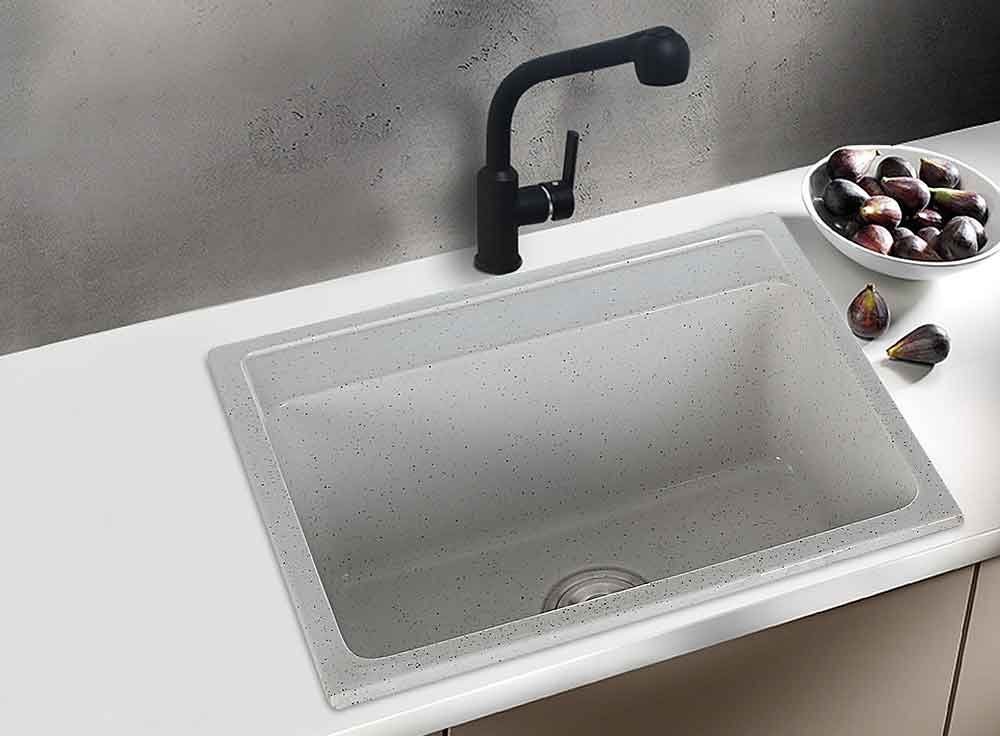There’s no denying the kitchen sink is the heart of your kitchen. It is where you do countless household chores, such as washing vegetables and doing dishes.
So it is necessary to clean your kitchen sink periodically. With that in mind, you might wonder, How often should you clean your kitchen sink?
We will help you answer this question in today’s article. Also, we will teach you how to clean your kitchen sink properly. So let’s get into the details!

How Often Should You Clean Your Kitchen Sink?
You should clean and disinfect the sides and bottom of your kitchen sink for at least a week to prevent microorganisms from multiplying in the sink.
It is true even if you haven’t used your kitchen sink for a long time. So even if the sink is not in use or looks clean, we recommend cleaning it weekly.
The reason is that bacteria can accumulate from unwanted places over time, and dust can quickly settle in unused spaces.
On the other hand, if you’ve handled raw meat in your sink, you should clean it up as soon as you’re done.
How To Clean Your Kitchen Sink?
So you’ve got the answer to “How often should you clean your kitchen sink?” It’s time to learn how to do it properly.
Step 1: Scrub and Rinse
We recommend using a soap-dispensing brush to scrub your sink.
A combination of water and mild dish soap will work well in cleaning most kitchen sinks, especially those that have more delicate surfaces, such as enameled cast iron or copper.
Water pastes and baking soda are ideal on tougher kitchen sinks like stainless steel. You should not use acidic cleaners, such as vinegar, on porcelain, enameled cast iron, or concrete.
- Stainless Steel: It is best to use a water paste and baking soda. Using a vinegar rinse is also okay.
- Copper, Granite, and Porcelain: Mix mild dish soap and warm water (Do not use scouring pads).
- Enameled Cast Iron: You should be okay with most non-abrasive ways (Avoid scuff marks and stains).
Step 2: Clean Crannies and Nooks
You will also need to clean the hard-to-reach points, which most likely harbor germy grime.
It is okay to use white vinegar and water to soak spray nozzles, sink strainers, and faucets.
Then, use a deep clean brush to scour grime along your drain edges and faucet base.
Step 3: Disinfect Your Kitchen Sink
If you want to make your stainless steel kitchen sink sparkle, try pouring water and vinegar into a 1:1 spray bottle to clean it.
White vinegar contains acetic acid, which is one of the natural disinfectants. So it will be very effective at killing common germs.
To treat surfaces that are unsafe with vinegar, it is feasible to apply a mixture of antibacterial soap and hot water.
Step 4: Wash Your Tools
After cleaning your kitchen sink, do not forget to wash the dish sponge.
Otherwise, it will stink over time. It is also a great idea to scrub the dish brush, sink mat, and sponge holder (or run these parts through the dishwasher).
Step 5: Maintain It Tidy.
If you want to keep the kitchen sink healthy, restocking dish brushes and sponges regularly are necessary.
In addition, you also need to keep them in one dishwasher-safe caddy.
See more:
How To Fix A Bathroom Sink Stopper That Is Stuck
How To Tighten A Single Handle Kitchen Faucet
FAQs
How Can I Deep Clean The Kitchen Sink?
You should apply the one-to-two ratio: Use equal amounts of baking soda and white vinegar.
Start by placing the baking soda down your drain, then slowly pour the white vinegar. After that, wait about fifteen mins for the bubbling duo to do its thing.
Finally, use hot water to remove any residue left in the drain.
What Is the Best Way to Clean My Kitchen Sink?
A combination of water and dish soap is ideal for cleaning kitchen sinks in most cases, particularly models with more delicate surfaces such as enameled cast iron and copper.
The Bottom Line
The article helped you answer, “How often should you clean your kitchen sink?”
You should clean the kitchen sink for at least a week to prevent microorganisms from multiplying. If you just used it to wash meat, clean your sink immediately.
We’ve also shown you how to clean your kitchen sink from things you might have in your kitchen. So make an effort to keep your kitchen sink sparkling.
Please share this article if it was helpful to you!
Thank you for your interest in the article!




